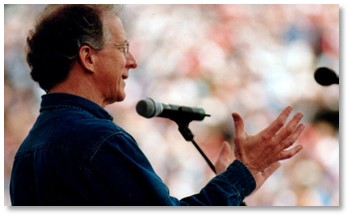Andreas Köstenberger attended last night’s debate between Daniel Wallace and Barth Ehrman at the University of North Carolina. Köstenberger writes an overview of how it went down, and he says that the audience feedback indicated that the debate had no clear winner. Köstenberger says that the technical stuff flew over everyone’s head. He also offers how he would have closed the debate had he been a participant. He writes:
Friends, I think I’ve shown that for every skeptical argument Bart Ehrman advances, there is a reasonable response that shows the Bible to be more reliable than he makes it out to be. But in the end, how many of us believe in the Bible because of text criticism, or the number of manuscripts, or differences in the variants? The bigger questions, I submit to you, are these: Is Christianity true? Is Jesus divine? Did Jesus die on the cross for our sins? Did he rise from the dead? Is Jesus the only way? What is the gospel? Will you and I believe? There are many believers in this audience who have become convinced that the Bible is true and that Jesus is real. We’ll continue to advance arguments and counter-arguments on the minutiae of textual matters, and those matter, but let’s not forget the bigger picture. The Bible is trustworthy, and Christianity is true. Hopefully, we can all agree on that. Thank you very much.
Debates like this one are fascinating, and they serve a definite apologetic purpose. But Köstenberger is correct. No erudite argument defending the integrity of the New Testament text will by itself bring someone to faith. Arguments about textual criticism can remove some barriers, but not all barriers to faith. There is a “bigger picture,” as Köstenberger has it. There may be evidence that demands a verdict, but fallen sinners universally make the wrong judgment apart from grace—no matter how much evidence is adduced. Read the rest here.
Dan Wallace is doing great and valuable work at The Center for the Study of New Testament Manuscripts. You can check out their work here.




2 Comments
yankeegospelgirl
On some level Kostenberger is right, but honestly, I’ve seen first-hand how apologetics can change souls and lives, particularly when it comes to young people. It’s the reason my father has devoted himself to working in the field. I have a friend who was leading worship in his church while simultaneously not reading his Bible, because he wasn’t sure it was reliable. My father gave him a small, old book on the reliability of the four gospels—just the four gospels.
Some time later they were having dinner with the young man’s pastor, and he took the book, held it up and said, “This is what brought me back.”
I could share other, similar stories.
Christiane
Ehrman started out as a ‘born-again fundamentalist’ and, having encountered and found wanting the arguments for the value of the suffering in this world, has become agnostic.
Thie pattern of a believer’s fundamentalism ultimately turning agnostic rather than joining another branch of Christianity shows up a lot.
But what are reasons for that?